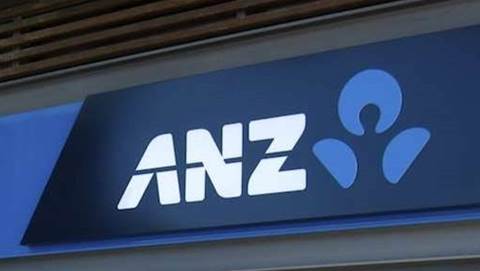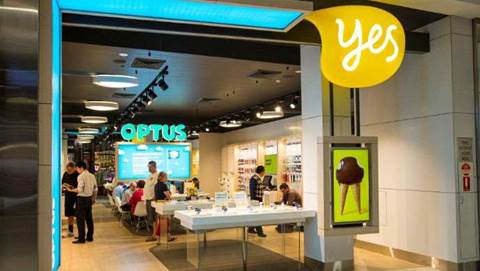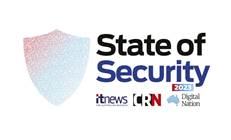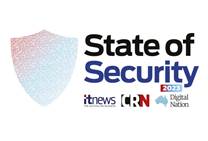Cancer Council NSW has established a 'single view of customer' across all of the systems it uses to raise funds as part of an ongoing effort to become fully digital and cloud first.

In this week’s CXO Challenge series on The iTnews Podcast, chief information officer Frances Waterford discusses the council’s IT structure, as well as the ‘single view of customer’ project and ongoing project works.
Cancer Council NSW said in February that it had used Dell’s Boomi platform “to connect core operational systems .., [and] establish a single view of its constituents.”
“The word we use is constituent, so we talk about people as being constituents and the different roles they have, be it supporter, client or volunteer,” Waterford said.
When Waterford joined the organisation two years ago, it had already undergone a major transformation of its systems, adopting Microsoft Dynamics CRM, peer-to-peer donation platform Funraisin, fundraising tool Evergiving, project management platform JIRA, and billing software Zuora, among other platforms.
“As a small-medium organisation, there's some really good products out there that are very fit-for-purpose with functions that we carry out,” Waterford said.
“We also use partner organisations to provide donation platforms in some cases and also to acquire our customers and help us with customer acquisition, and they've got systems of their own that we utilise.
“What we really wanted to do was make sure that we could use those great providers or applications that are in the market, because they've got very good solutions that are fit-for-purpose for the fundraising industry at a pretty good price point.
“But we wanted all of that to integrate through to our CRM and our billing solutions, so that we could have that ‘single view of customer’.”
Waterford said it was clear from early in her tenure that there were integration challenges between all the different platforms that the council used.
“Once I'd done that first 100 days and identified the business strategy, the pain points and the priorities, it really stood out to me as the fundamental piece that was missing,” she said.
“We needed integrated processes that worked across the organisation, and so we needed an integration layer that allowed us to have those end-to-end integrated processes and the best efficiency and timeliness of information.”
The need struck at the heart of Cancer Council NSW’ operations.
“The value was right in the middle of our core business around our constituents: how they register with us, how they make donations to us, and how that's banked,” Waterford said.
“It was right in that core, and so we decided to really tackle the big opportunity - and with the business support, we did that.”
The setup enabled Cancer Council NSW to really understand how a constituent interacted with the organisation in all facets.
“Lots of people might participate in different channels, but we wanted to bring it all back to that single point of customer, so that when we're talking to our constituets, we can see the richness of their relationship with us, and give them a good experience,” Waterford said.
“The most common example is that they might be a regular donor to us or participate in one of our annual campaigns, like the Biggest Morning Tea.
“Or they might be a host of a morning tea and bank donation funds for us through a campaign like that, and they could also be a volunteer, so they might actually come into our office or work in one of our treatment centres as a volunteer.
“It's really important that we recognize both sides of that relationship with them and make sure that all that information comes together into one picture of that supporter.”
The CRM system acts as the single source of truth on a constituent, with information passed from the various systems into the system via Boomi.
“The CRM is the core [system] where we've got our constituents and all of the information about them,” Waterford said.
“The Boomi platform is effectively passing through registrations and donations or information about volunteering, or even potentially if that person is a client or is a service recipient of ours.
“That means [for] all of our processes that we carry out, ultimately CRM is the home master for that information.”
Further enhancements have been made with a recent project around master data management, which went live in December of last year.
“What that allows us to do is what we call ‘match and merge’,” Waterford said.
“It gives more opportunity to make sure that we match someone to their existing record fundamentally so that we're not missing that connection with people.
“A really basic example - it's a little bit more complex than this - is the Fran versus Francis, where you might choose a different spelling of your name, or it might even be my maiden name instead of my married name - those kinds of things.
“Master data hub allows us to look at some more complex criteria to make sure that we're always matching you to the identity in our CRM.”
Waterford added that the council has a “multi-year roadmap of opportunities to extend” use of the Boomi solution, with works currently underway in its cancer information support services unit, “which supports people experiencing cancer and then provides information and support services to them.”
“We're really extending what we've done with the fundraising area into some more digital experiences and much more straight-through processes with that team, and certainly moving from a service-centric approach to how they deliver services to a client-centric approach,” Waterford said.
“That's a major project that we're going to do this year.”
Waterford said the project was about extending the reach of the support team.
“They provide counseling and pro bono professional advice to people who are experiencing cancer, and the aim is to be able to reach more clients with those services,” she said.
A federated IT structure
Cancer Council NSW has an IT team of 15. While the Cancer Council is national, its structure is federated among the states and territories, each of which has its own independently-run IT unit.
“We share the brand, and a few major fundraising events of the year, and we collaborate a great deal, but they are individual entities with their own boards, management structures, and technology stacks, and strategies,” she said of each state and territory operation.
“I do meet with my peers from the other federations at least once a month, and we talk about what we're doing and we do share ideas and approaches to things, but we do operate quite independently.”
Cancer Council NSW’ digital investments were particularly valuable in 2020 as the Covid-19 pandemic forced in-person fundraising events online.
“The last 12 months, everything was a digital event,” Waterford said.
“We had to definitely turn some events that were almost exclusively physical into digital ones.”
That had put the focus internally on ensuring that digital provided the best possible experience.
“[The pandemic] meant that those processes working well are more important than ever,” Waterford said.
“We were really fortunate that, as an organisation, we had done so much transformation of our systems.”
Subscribe to The iTnews Podcast at Apple Podcasts, Google Podcasts, Spotify, iHeartRADIO , Amazon Podcasts or wherever else good podcasts are found. New episodes will be released every Monday.





.png&h=140&w=231&c=1&s=0)
.png&h=140&w=231&c=1&s=0)




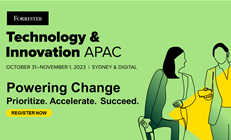 Forrester Technology & Innovation APAC 2023
Forrester Technology & Innovation APAC 2023







